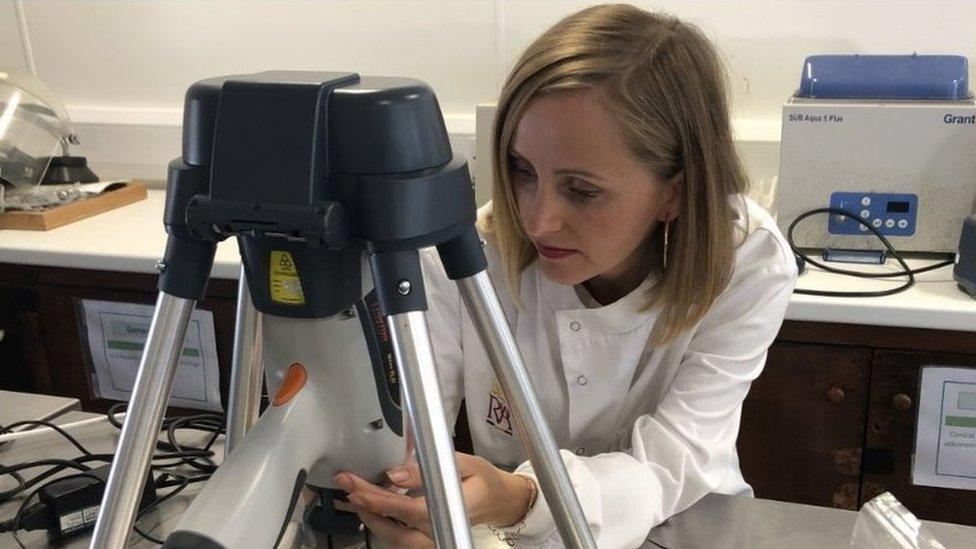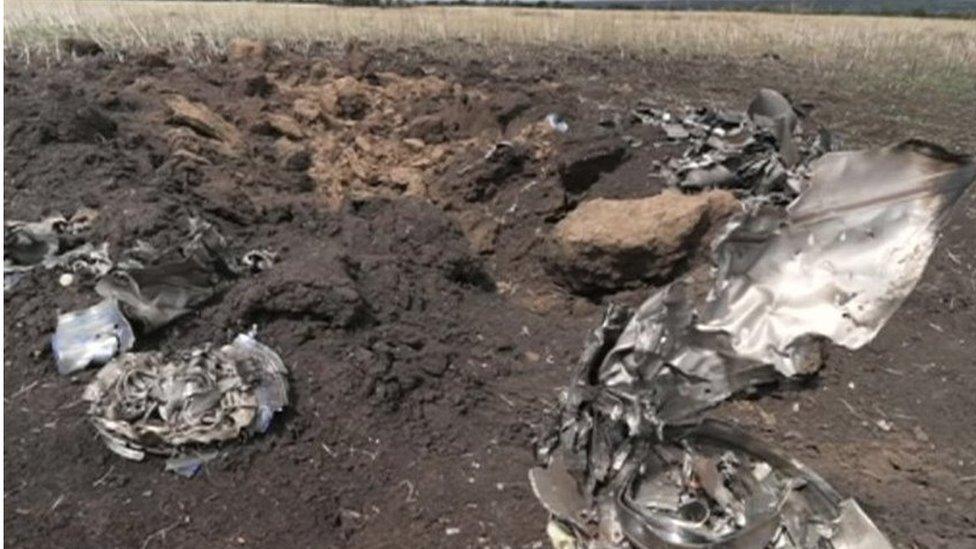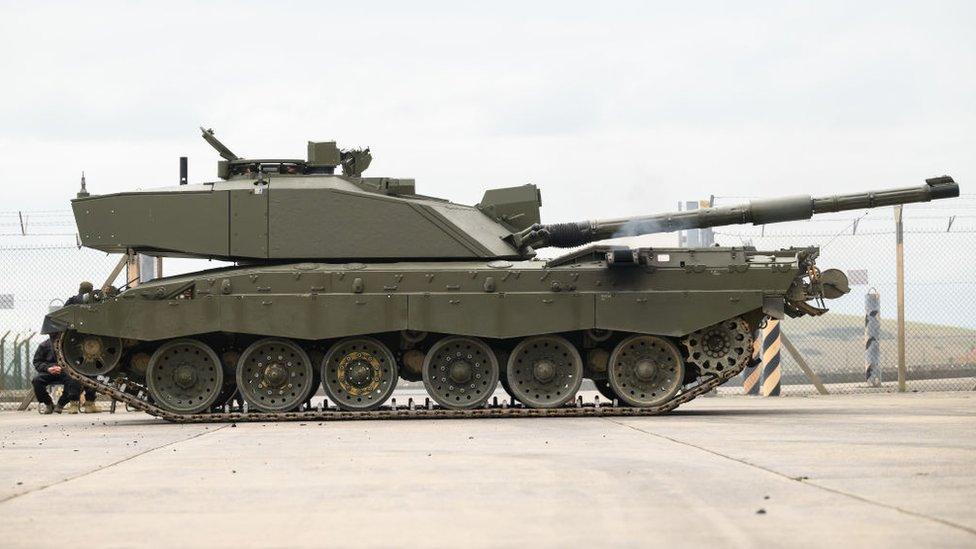Polluted soil from Ukrainian battlefields analysed
- Published

Samples of soil from Ukraine are being tested at the Royal Agricultural College
Students are learning how they can improve the quality of soil contaminated by the war in Ukraine.
There are concerns that pollutants in bombs and high explosives could have a long term effect on soil.
The Ukrainian nationals are analysing samples at Cirencester's Royal Agricultural College and learning about sustainable farming.
They have also received special equipment to find heavy metals and other pollution caused by the conflict.
"We've been find some really alarming metals there," said Professor Mark Horton.
"Our real worry is that crops that grow over these bomb craters will incorporate these poisonous metals and contaminate the world's food supply."

Fertile fields in Ukraine contaminated with shell craters could take years to recover
For the past 18 months bombs and artillery shells have been causing huge damage to Ukraine's landscape.
Fields filled with fertile soil have been polluted by bombs and could take years to recover.
The debris and left over chemicals can also seep into the local groundwater and affect the local foodchain.
"The age of illnesses become younger, chronic illnesses especially, because of problems connected with environmental pollutions," explained Professor Olena Melnyk.
As part of their visit, the team from Sumy University in Ukraine was also taken to an organic farm in the Cotswolds.
They have had a chance to learn about sustainable farming methods which they could be introduced in Ukraine.

Follow BBC West on Facebook, external, Twitter, external and Instagram, external. Send your story ideas to: bristol@bbc.co.uk , external
Related topics
- Published21 March 2023
